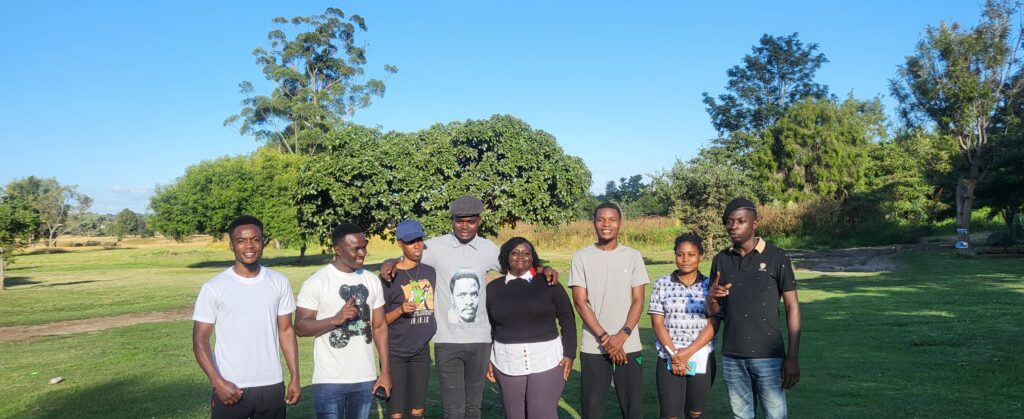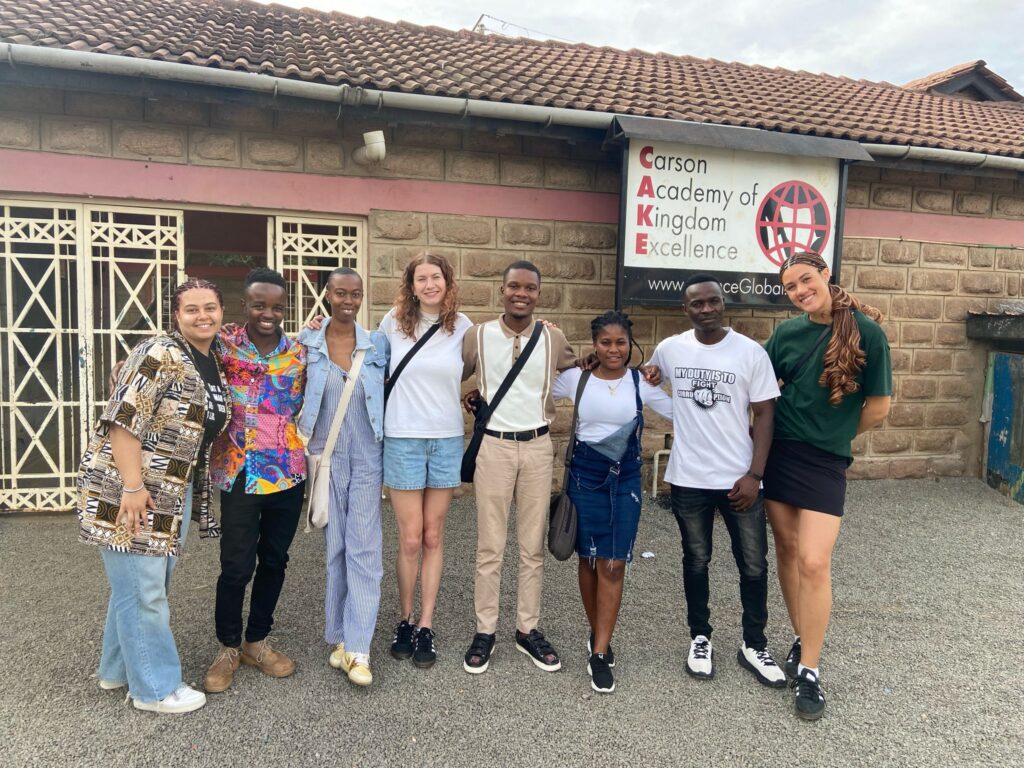21 – 23 April 2025
Executive Summary
This report synthesizes insights from a series of interconnected training sessions focused on civic education for safety (digital and physical security), feminist leadership, and women’s empowerment. It integrates initial report summaries with detailed evaluations from members of the National Executive Council (NEC), offering a comprehensive assessment of the knowledge gained, challenges identified, actionable resolutions, and the overall impact of these sessions. The report underscores the interconnectedness of these themes in promoting social justice, human rights advocacy, and the empowerment of marginalized communities within Zimbabwe’s complex socio-political landscape. The analysis leads to specific recommendations for enhancing future training initiatives and promoting sustainable change.
I. Civic Education on Safety: Navigating Surveillance and Empowering Activists facilitated by Abel Sibanda from Global Platform Action Aid Zimbabwe
A. Key Concerns and Vulnerabilities
In an era defined by increasing digital connectivity and sophisticated surveillance technologies, civic education on safety is paramount for activists and human rights defenders. This section examines the multifaceted challenges posed by government surveillance, inherent vulnerabilities in digital communication, and effective strategies for mitigating risks and protecting activists in Zimbabwe. The initial report highlighted concerns regarding legal instruments like SI.142 of 2013 and Section 9 of the Interception of Communications Act, perceived as tools used to suppress dissent. This concern was echoed by NEC members, who expressed increased awareness of the risks associated with social media platforms and the extent of government surveillance.
The report emphasized the dangers of digital vulnerabilities, including the use of search engines like Yandex and surveillance technologies like Pegasus. The case of Jeff Bezos and the tragic death of a journalist were cited as stark reminders of the potential consequences of digital insecurity. This resonated with NEC members who acknowledged the importance of understanding digital security beyond basic passwords and the need to be vigilant about online activity.
B. NEC Perspectives: Knowledge Gained and Challenges Identified
NEC evaluations revealed a heightened awareness of the risks associated with social media platforms, the extent of government surveillance, and the importance of digital literacy. Participants identified digital illiteracy, a lack of awareness of surroundings, and the difficulty of implementing safety protocols as major challenges. One NEC member stated, “Major threats to this topic include not being digital literacy and failing to be aware of your surroundings.” This underscores the urgency of addressing these challenges to safeguard activists and their communities.
NEC members prioritized knowledge dissemination as the most critical step in addressing these challenges. They recognized that empowering individuals with knowledge is essential for promoting safer practices. One NEC member explained, “I would tackle digital illiteracy first and the reason being that not being well versed in digital security poses a risk not only to you but even your family can be exposed to serious life risk.”
C. Actionable Resolutions and Strategies
The training session prompted NEC members to develop actionable resolutions to enhance their personal safety and promote safer practices within their communities. These included using safe digital tools, storing information securely, avoiding planning sensitive events on social media, and being more aware of their surroundings.
NEC members identified a range of impactful tools and strategies for their communities, including social awareness campaigns, constitutional awareness training, situational awareness, and breaking daily routines. They also developed sustainability plans to ensure that the knowledge acquired during the training session is shared and implemented effectively. These plans included sharing knowledge with provincial and chapter leaders, creating podcasts featuring experts, and continuously discussing safety in all union events.
D. Recommendations for Enhanced Civic Education on Safety
Based on the initial report and NEC evaluation responses, the following recommendations are proposed to enhance civic education on safety for activists:
- Develop Targeted Training Programs: Create tailored training programs that address the specific digital and physical security challenges faced by activists in Zimbabwe.
- Promote Digital Literacy: Implement initiatives to improve digital literacy among activists and their communities, focusing on safe online practices and the use of privacy-enhancing tools.
- Foster a Culture of Security Consciousness: Encourage a culture of security consciousness within activist communities, emphasizing the importance of prioritizing safety in all aspects of their work.
- Provide Ongoing Support: Offer ongoing support and resources to activists, including access to legal assistance, mental health services, and digital security experts.
- Advocate for Policy Changes: Lobby for legal reforms that protect the privacy rights of citizens and limit government surveillance powers.
- Establish Community Focus Groups: Create community focus groups to facilitate information sharing, peer support, and the development of local safety strategies.
II. Feminist Leadership and Women’s Empowerment: Fostering Equality and Challenging Discrimination facilitated by Annah Sande
A. Core Principles and Challenges
The training on Feminist Leadership and Women’s Empowerment aimed to define feminism as the pursuit of equality for all genders and emphasized core principles such as equality, inclusivity, transformative leadership, and intersectionality. The initial report highlighted the importance of challenging discriminatory practices and advocating for policy changes that promote gender equality.
NEC evaluations revealed a deeper understanding of feminism as a movement for equality and social justice, rather than a fight against men. Participants identified religious beliefs, cultural norms that perpetuate patriarchy, and a lack of understanding of feminist principles as major challenges.
B. NEC Perspectives: Addressing Misconceptions and Promoting Grassroots Education
NEC members prioritized grassroots education as the most critical step in addressing these challenges. They recognized that empowering individuals with knowledge is essential for challenging misconceptions and promoting understanding. One NEC member explained, “I would start by a misguided approach on what feminist leadership seeks to achieve, because this has created more gap between opportunities accessible to females and males mostly creating another disparity.”
NEC members resolved to implement specific actions to promote feminist leadership and women’s empowerment within their communities. These included clearly defining feminism to youths, treating children equally regardless of gender, and constantly enlightening their student communities on feminism and women’s empowerment.
C. Actionable Strategies and Sustainability Plans
The training session provided NEC members with practical skills and knowledge that they could apply to their personal activism. These included promoting participatory democracy, advocating for policies that uphold feminist values, and creating safe spaces for dialogue and discussion.
Participants identified a range of tools and strategies that they believed would have a significant impact on their communities. These included mentorship programs, grassroots conscientization, lobbying and advocacy, and the creation of safe spaces.
NEC members developed comprehensive plans to ensure the sustainability of the knowledge acquired during the training session. These plans included formulating policies that uphold feminist values, encouraging a reading culture on feminism, conducting interviews to understand perceptions of feminist leadership, and training others using scenario-based approaches.
D. Recommendations for Enhancing Feminist Leadership and Women’s Empowerment Initiatives
Based on the initial report and the NEC evaluation responses, the following recommendations are proposed to enhance feminist leadership and women’s empowerment initiatives:
- Develop Comprehensive Education Programs: Create comprehensive education programs that address the root causes of gender inequality and promote understanding of feminist principles.
- Engage Men as Allies: Actively engage men as allies in the fight for gender equality, encouraging them to challenge patriarchal norms and support the empowerment of women.
- Promote Intersectional Approaches: Encourage an intersectional approach to feminism, recognizing the interconnectedness of various forms of oppression and advocating for the rights of all marginalized groups.
- Create Safe Spaces for Dialogue: Establish safe spaces for dialogue and discussion about gender equality and feminist issues, fostering open communication and mutual understanding.
- Support Women-Led Organizations: Provide financial and logistical support to women-led organizations and initiatives working to advance gender equality and social justice.
- Advocate for Policy Changes: Lobby for policy changes that promote gender equality and the empowerment of marginalized groups, such as equal pay legislation, affirmative action policies, and laws protecting against gender-based violence.
III. Supporting Suspended ZINASU Members: An Integrated Approach to Student Welfare conversation with Obert Masaraure the President at Amalgamated Rural Teachers Union of Zimbabwe
A. The Plight of Suspended Students and the Need for Solidarity
The suspension of ZINASU members from universities represents a significant challenge to student activism and academic freedom in Zimbabwe. The initial report highlighted the precarious situation faced by suspended students, many of whom rely on university employment for their financial survival. The report emphasized the need for immediate financial and emotional support, as well as the revival of the Students Solidarity Trust (SST).
B. Integrated NEC Perspectives: Values in Action
The emphasis on community, support groups, and knowledge sharing in the safety and feminist leadership evaluations directly translates to the need to support suspended students. The focus on challenging discriminatory practices and advocating for policy changes aligns with the call to challenge the legality of the suspensions. The commitment to creating opportunities and ensuring that marginalized groups feel valued resonates with the need to ensure suspended students remain included in the student movement.
C. Recommendations for Supporting Suspended ZINASU Members (Integrated)
Based on the initial report and the integrated perspectives from the NEC evaluations, the following recommendations are proposed:
- Establish a Comprehensive Support System: Create a comprehensive support system for suspended students that includes financial assistance, emotional support, legal aid, and opportunities for continued engagement in the student movement.
- Revitalize the Students Solidarity Trust (SST): Re-establish the SST as a sustainable mechanism for providing long-term support to students facing hardship.
- Launch a Fundraising Campaign: Conduct a fundraising campaign to provide immediate financial assistance to suspended students.
- Offer Mentorship and Guidance: Pair suspended students with mentors who can provide guidance, support, and encouragement.
- Advocate for Policy Changes: Lobby university authorities to adopt fair and transparent disciplinary procedures that protect the rights of students.
- Promote Public Awareness: Raise public awareness about the plight of suspended students and advocate for their reinstatement.
IV. Conclusion: A Holistic Approach to Social Justice and Empowerment
The interconnectedness of civic education on safety, student support, and feminist leadership underscores the importance of a holistic approach to social justice and empowerment in Zimbabwe. By addressing the challenges posed by government surveillance, supporting vulnerable students, and promoting feminist principles, we can create a society that protects the rights of all citizens, empowers marginalized communities, and fosters a culture of equality and social justice.
The training sessions on these topics had a significant impact on the NEC members, equipping them with valuable knowledge, skills, and perspectives to lead and serve their communities effectively. The NEC evaluations provided valuable insights into the effectiveness of the training sessions and identified areas for future improvement.
V. Recommendations for Future Training Sessions
Based on the findings of this report, the following recommendations are proposed for future training sessions:
- Tailor Training to Specific Needs: Conduct needs assessments to identify the specific challenges and priorities of participants and tailor training content accordingly.
- Provide Practical Skill-Building Opportunities: Incorporate more practical skill-building opportunities into the training sessions, such as simulations, case studies, and group exercises.
- Facilitate Peer Learning: Create opportunities for participants to learn from each other through peer mentoring, group discussions, and collaborative projects.
- Offer Ongoing Support and Resources: Provide ongoing support and resources to participants after the training sessions, including access to mentors, online communities, and funding opportunities.
- Evaluate Training Effectiveness: Conduct thorough evaluations of training effectiveness to identify areas for improvement and ensure that the training is meeting the needs of participants.
- Integrate Cross-Cutting Themes: Emphasize the interconnectedness of governance, safety, feminist leadership, and women’s empowerment, and encourage participants to develop holistic approaches to addressing social justice issues.
By implementing these recommendations, future training sessions can be even more effective in empowering activists, women, and marginalized groups to lead and serve their communities effectively and contribute to a more just and equitable Zimbabwe.


